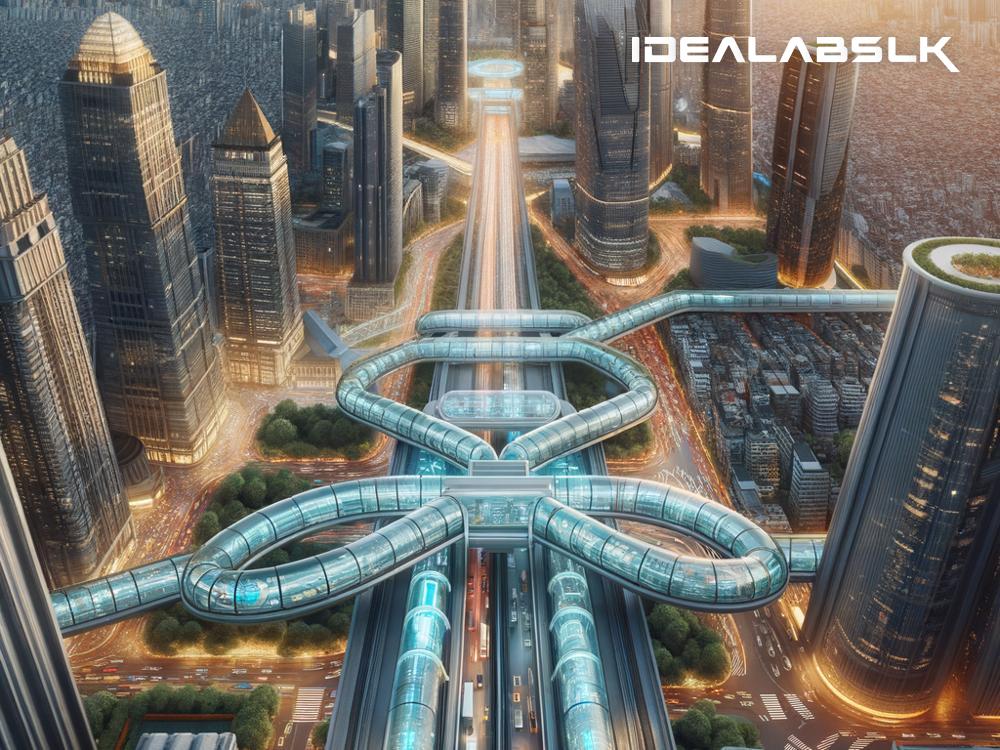How Elon Musk’s Boring Company Could Revolutionize Urban Infrastructure
In cities around the world, the daily commute is often a source of frustration. Traffic jams, crowded public transport, and lengthy travel times can make getting from point A to point B a real headache. Enter Elon Musk's Boring Company, an ambitious venture that could significantly change how we think about urban infrastructure and potentially turn our commuting nightmares into a thing of the past.
The Birth of the Boring Company
Back in 2016, Elon Musk, a name synonymous with groundbreaking ventures like SpaceX and Tesla, introduced the world to his latest brainchild: the Boring Company. While the name playfully suggests something mundane, the company's mission is anything but. It aims to reduce traffic congestion through an innovative solution—creating an extensive network of underground tunnels that could transform urban transportation.
A Glimpse Into the Future
Imagine stepping out of your office, walking a short distance, and hopping into a sleek, electric-powered capsule. Moments later, you're whisked away at high speeds, not through the skies or over rails, but through a network of tunnels below the city streets. This vision is at the heart of the Boring Company's goals. But how could this futuristic concept realistically impact our urban landscapes?
Easing Traffic Congestion
The most immediate and apparent effect of the Boring Company's tunnels would be on traffic congestion. By moving a significant portion of vehicular movement underground, there would be fewer cars on the streets. This transition could lead to smoother traffic flow on the surface, shorter travel times, and potentially even benefits for the environment through reduced emissions.
A Boost for Public Transport
The Boring Company's infrastructure could also provide a massive boost to existing public transport systems. Integrating these high-speed tunnels with subway, train, and bus lines could create a seamless and fast-moving urban transport network. Commuters would have more options to get around quickly, possibly reducing the reliance on personal vehicles and, again, contributing to a decrease in traffic congestion and pollution.
Challenges Ahead
It's not all smooth sailing, or boring, for that matter. The ambitious plans of the Boring Company do face significant challenges. Digging tunnels, especially in densely populated urban areas, comes with a plethora of technical, regulatory, and financial hurdles. There's the issue of navigating underground utilities, ensuring the stability of buildings above, and, of course, the substantial cost of such extensive construction work. However, with Musk's track record of tackling seemingly impossible projects, these obstacles may not be insurmountable.
A New Way of Thinking About Urban Spaces
Perhaps the most intriguing aspect of the Boring Company's potential impact is the shift in how we might start thinking about urban infrastructure and space. Historically, cities have expanded outward and upward. The idea of going deeper, creating new layers of urban space beneath our feet, opens up a world of possibilities. From transportation tunnels to underground parks and shopping areas, the concept of "depth" could become a new frontier in urban planning.
The Road Ahead
While the Boring Company has already begun work on several test tunnels and received permits for projects in cities like Las Vegas, the widespread application of Musk's vision is still on the horizon. The company needs to prove that it can not only build these tunnels safely and efficiently but also that the system can integrate smoothly with existing city infrastructures and truly deliver on its promise of revolutionizing urban transportation.
The Bottom Line
The potential impact of the Boring Company on urban infrastructure is immense. By providing a solution to some of the most pressing issues faced by cities today—traffic congestion and inefficient public transport—the company could fundamentally alter the way we move through urban environments. However, realizing this vision will require overcoming significant challenges. If successful, Musk's venture could herald a new era of city living, making our daily commutes faster, cleaner, and maybe even a little bit exciting. As we watch the Boring Company's projects unfold, one thing is clear: the future of urban transportation might just lie underneath our feet.

